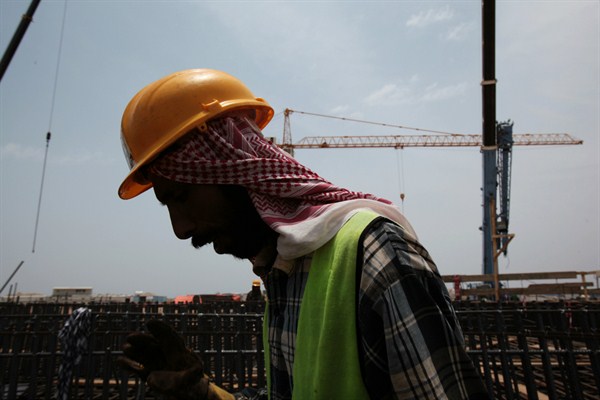It is no secret that Saudi Arabia is experiencing a sharp economic slowdown and has decided to respond by implementing far-reaching economic reforms. But in recent days, a less well-known aspect of this transformation has become visible, highlighting the repercussions and potential risks of the kingdom’s crisis.
Less than 60 days after the Saudi government announced its five-year National Transformation Program, part of the larger Vision 2030 reforms, the government of India announced it had launched an emergency operation to rescue thousands of desperate Indian nationals caught in Saudi Arabia’s economic crosscurrents. The plight of large numbers of South Asian migrant laborers living in Saudi Arabia and suddenly trapped without a job gave a human face to an economic crisis that until now had been visible around the world mostly in the form of economic papers, market analysis and policy pronouncements.
After news that Indian laborers were “starving” in Saudi Arabia, without wages, food or the ability to return to their countries, the Indian government promptly started distributing food to some 16,000 destitute workers. The workers have not received their wages for months and have been trapped in the kingdom because of the Saudi system known as “kalafa,” or sponsorship, which gives employers extensive powers over foreign workers. Employers routinely keep the workers’ passports and have control over their ability to obtain visas, including exit visas.

